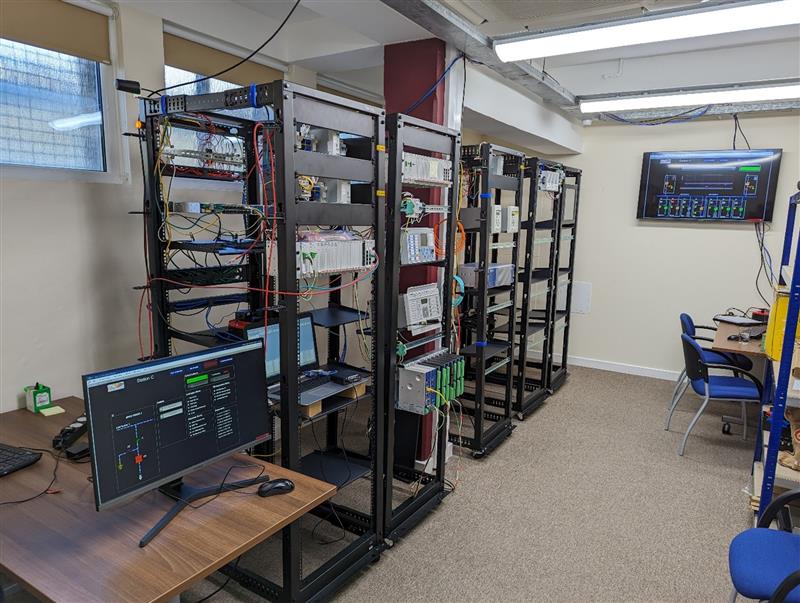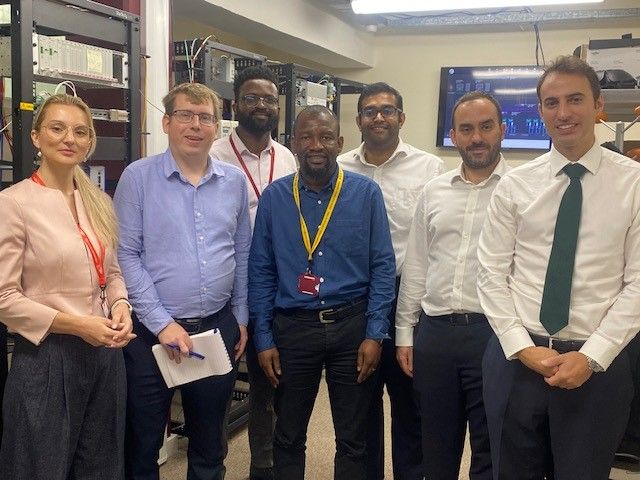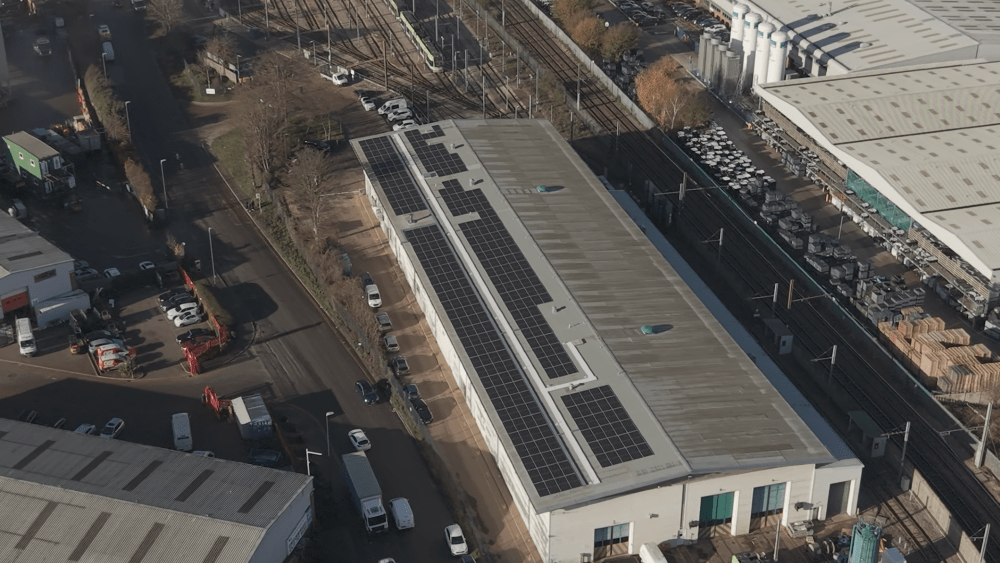UK Power Networks Services continued investment in an innovative facility that allows the company to control, manage and monitor substations and other electrical infrastructure on behalf of clients is helping the industry accelerate its transition towards a decarbonised future. Transport + Energy Editorial Director Alec Peachey caught up with the company’s Head of Engineering Steve Muscat to find out more.
As one of the few companies within the UK to have a Supervisory Control and Data Acquisition (SCADA) Verification Facility (SVF), UK Power Networks Services are in a unique position of being able to assess solutions in a controlled safe environment, prior to deployment.
This allows for extensive interoperability and integration testing to take place efficiently in the lab to enable the company to understand outcomes before rolling solutions out on site. By carrying out such testing in an off-site safe lab environment, they minimise any potential risks for their customers operations and personnel.
This approach also contributes to programme, cost, and environmental efficiencies as it enables their engineering team to minimise the time spent on site and achieve reduced CO2 emissions.
UK Power Networks Services’ Head of Engineering Steve Muscat told Transport + Energy:
‘’We look after a number of key critical private networks across the UK. We work closely with our clients and aim to be at the forefront of the energy transition.
‘’This involves working in partnership and helping them to deliver innovation, which in turn gives them improved reliability of their networks and makes them more sustainable. We also help them to be cost efficient.’’
The company works across a variety of different markets and sectors including transport, aviation, railways, electric vehicles, fleets, and nuclear.
‘’This means that we have a huge range of different customers,’’ adds Muscat. ‘’What we’re trying to do is help them to get value out of the electrical infrastructure they have.’’
With client networks becoming increasingly more complex the benefits of SCADA cannot be underestimated.
Muscat continues: ‘’As networks become more complicated, they are more essential for a client’s operations. They may have more things stitched into them, like sustainable generation, or electric vehicles, so being able to monitor and see the performance of their electrical infrastructure and controls has become vastly more important than it ever has been in the past.
‘’They’re able to respond if something goes wrong and they can see how much power they’re using at certain times and try and use that to minimise the cost of energy.’’

The integration of technologies such as solar and electric vehicles has led to an increase in demand for SCADA.
‘’Ten years ago, the integration of solar and electric vehicles was not as prominent as it is now,’’ explains Muscat. ‘’So, this has driven an accelerated demand for this type of technology. We live in a very different age now than we did 20 years ago. Twenty years ago, smartphones didn’t exist. Now, people think it’s almost a given that they should be able to see how their network is working in real time. What is the performance of it? What is the condition of it? And so, it’s kind of catching up the technology with the infrastructure to support that.’’
The rising costs of energy are another good reason why the implementation of this type of technology is so key.
‘’When you look at people in their homes, they’re now able to understand the cost of energy in the day compared to the cost of energy at night. So, businesses want to be able to control when they turn assets on and when they turn themselves off. Monitoring performance allows them to take advantage of using the assets during a time of the day when it’s more cost effective, or when they get the most back from generating electricity.’’

Working in partnership with the sector
UK Power Networks Services continue to work in partnership with companies in the clean transport and energy space to move the needle on innovation and sustainability.
The company has worked with companies such as bp pulse and UPS to help roll out electric vehicle charging infrastructure and decarbonise fleets.
UK Power Networks Services also implemented new smart electric vehicle charging systems to power UPS’s central London delivery fleet.
A new smart charging solution allowed UPS to increase the number of 7.5-tonne electric trucks operating from its London site from the current limit of 65 to 170, without the need for an upgrade to the power supply connection.
‘’We were able to deploy a smart charging solution, and an integrated energy storage device,’’ notes Muscat. ‘’This meant we were able to maximise the control of when the vehicles were being charged so that they charged at the least cost of the energy. They were seeing some good values, and this has allowed us to go into other fleet markets.’’
The company has also worked with Veolia and helped them to introduce electric refuse collection vehicles across Westminster City Council. UK Power Networks Services installed 21 charge points to support 40 electric vehicles.
Another example of a project, which encompasses both transport and energy, is a new state-of-the-art solar car port array which was opened by Northumberland County Council earlier this year.
The project includes a covered parking area with a canopy made from photovoltaic (PV) panels, designed, and built by UK Power Networks Services, and providing clean energy to the council’s headquarters at County Hall in Morpeth.
The new solar infrastructure is one of the largest car port array installations in the UK with 800kW solar panels, and a 400kW battery energy storage system with smart controls to optimise energy use, carbon emissions and costs throughout the day.
Energy from the solar panels is used to power the main building, provide electricity to electric vehicle (EV) charge points for fleet and staff vehicles and stored to help optimise costs and carbon efficiency. 120 EV charge points have been installed in the staff car park, including 100 fast chargers and 20 rapid chargers.
‘’One of the interesting things with that project was the fact that we deployed an energy storage system to capture the electricity that was generated when it was daylight and then use that energy in the evening,’’ remarked Muscat. ‘’When you get to the winter periods where the days are shorter it becomes more effective, because you have got people using that car park during working hours, when it’s dark.’’
Muscat heads up an in-house team of over 100 world-class engineers and professionals, who work with clients as strategic partners and help to provide unrivalled expertise and advice.
There are also environmental benefits brought about through using SCADA, as Muscat explains: ‘’I think one of the key things working with SCADA and control and automation is that you can see exactly where your electrical power is being used across your network, whether it is just used to run your operations, but more importantly, nowadays, where you might use sustainable generation to create that energy. SCADA allows you to deploy those technologies, control the flow of power and do it in a way which maximises the efficiency of your network, and thereby reducing the cost of energy for your network. SCADA unlocks that real time data enabling operators to be able to do this.’’
More widely, the work carried out by UK Power Networks Services is helping to support the UK economy, provide energy security and help provide a better environment.
‘’Keeping the country moving and keeping the lights on are key. Our solutions, being the nature of what they are, opens manufacturers ability to invest more in the UK for manufacturing.
“We’re part of the energy trilemma and we are trying to affect change in a cost-effective way. I think everyone in the team personally feels proud about being able to deploy technologies and getting them to work. When you look at something like High Speed 1, currently the only high-speed rail line in the UK, which we exclusively own, operate and maintain the high voltage traction and non-traction systems for, it’s a transport system, where the amount of carbon people travelling on that takes out of the air, compared to cars and vehicles – people can really see that and associate with it.’’
For more information on SCADA and the work of UK Power Networks Services, visit UK Power Networks Services of follow them on LinkedIn https://www.linkedin.com/company/10874620












